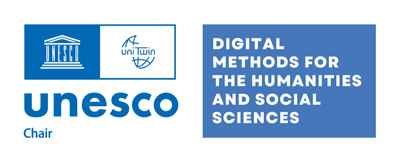Projects
Block 15 |
The present project focuses on the infamous Block 15 of the Haidari Concentration Camp in Western Athens, the largest and most notorious German concentration camp in wartime Greece, as a showcase of a largely neglected site of difficult heritage and will attempt to make the building, currently an endangered one, accessible to audiences and communities of diverse backgrounds through the use of immersive technologies. The project aims at creating impact on many different levels: Through original scenarios based on primary and multimedia archival sources that will largely be based on digital storytelling, the interactive, immersive Virtual Reality experience to be developed will not only bring back to life the actual monument that is Block 15, but will also function as a reminder of the horrors and torture inflicted by the Nazis on prisoners, in an attempt to reintroduce a historically and politically contested site to heterogeneous audiences, both in situ as well as in sites outside the Concentration Camp. |
ATRIUM |
ATRIUM (Advancing Frontier Research In the Arts and Humanities) is a European Commission-funded research project, launched in January 2024, which will run for four years. The project bridges four leading European Research Infrastructures: DARIAH (arts and humanities), ARIADNE (archaeology), CLARIN (languages), and OPERAS (open scholarly communication in the social sciences and humanities), and brings 17 partners and 12 affiliated entities from 12 countries across Europe. The Arts and Humanities is a very diverse field, covering a range of disciplines and communities of practice that have different epistemological and methodological foundations: an archaeologist and an art historian studying a Mycenaean fresco will have distinct goals and approaches to describing their objects of research. A literary scholar and a linguist will come to a textual corpus with radically different senses of what a corpus is and what questions can be asked of it. Yet research infrastructures in the Arts and Humanities domain must cater to a very wide range of stakeholders and offer services that cut across discipline-specific boundaries. ATRIUM will tackle this heterogeneity within the Arts and Humanities by going deep and wide at the same time: on the one hand, ATRIUM will make a groundbreaking contribution to the consolidation and expansion of services, including data services, specifically in the field of archaeology. On the other hand, ATRIUM facilitates access to a wide array of essential text, image and sound-based services that benefit a number of other disciplines within the Arts and Humanities, and cover all phases of the research data lifecycle (creating, processing, analyzing, preserving, providing access to and reusing). For more info click here |
ARTEMIS |
The ARTEMIS (Applying Reactive Twins to Enhance Monument Information Systems) project addresses the field of cultural heritage conservation, restoration, safeguard and valorisation by advanced digital technologies, using digital twins and relying on advanced AR/VR technologies. The project relies on an extended digital documentation of heritage assets with 3D models incorporated in their digital twins, by implementing services on heritage data that model the behaviour of the real-world assets in different conditions and under the effect of complex external phenomena. The same approach will allow digital experiments testing the effect of activities simulated on the twin. Whenever suitable, the developed services will avail of AR/VR techniques to manage the simulation input and to visualize the outcomes. ARTEMIS will rely on the know-how of participating worldclass research infrastructures, making available a huge amount of heritage documentation data, on the contribution of advanced research centres and on the support of specialized technological SMEs. The project will produce a scientific methodology tested on a large number of pilots and will pave the way for innovative applications in heritage research based on digital twins and AR/VR techniques. For more info click here |





